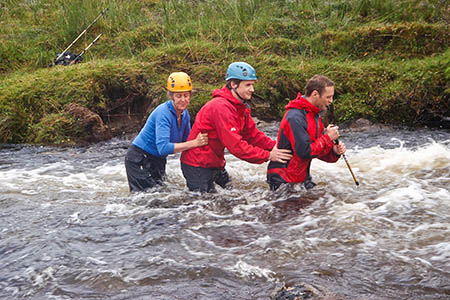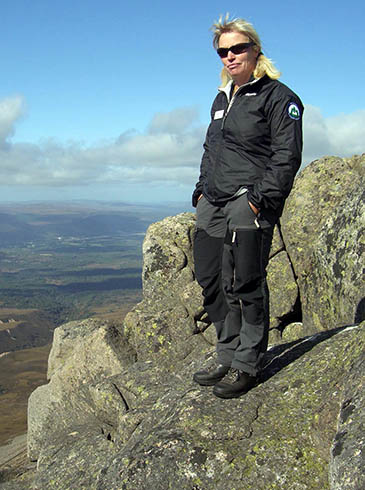Mountain experts are warning walkers heading for the hills in Scotland to think ahead if their route involves a river crossing.
The Mountaineering Council of Scotland said as autumn approaches, the risk of flooded burns and rivers is likely to increase, and unwary walkers could get stranded if levels rise.
A spokesperson said: “The increased rainfall, especially noticeable after the dry summer, can result in some normal burn and river crossings becoming impassable.
“Even a burn you crossed earlier in the day can have risen to dangerous levels by afternoon, and in remote areas it’s not always possible to know for sure whether a river or burn crossing will be possible until you get there.
“It is much better to plan ahead than be caught out in a remote location, unable to cross back to the safety of your vehicle, tent or bothy.
Heather Morning, the council’s mountain safety adviser, added: “Anyone heading out into the hills this autumn should take the time to check the weather forecasts.
“If heavy or prolonged rain is forecast it would be advisable to choose a route that crosses glens at the watersheds or as high up the glen as possible, where the burns are much smaller.”
The MCofS has also produced a Water Safety for Walkers DVD which can be ordered through its website or by phoning 01738 493943.


russell zenthon
03 September 2013http://www.facebook.com/photo.php?fbid=429362297099296&set=a.429361920432667.13850188.105956216106574&type=3&theater
this picture is Bynack Burn, unpassable for my DofE group> the next day we rock hopped without a problem.
Richard
04 September 2013I agree with Russel in that they were sensible not to cross and refer to it as unpassable and did not try to cross. Without bouyancy aid, helmets and downstream contingency, the above action is pretty risky. When we train in fast flowing water shallower than the above it is easy to lose your footing and then theb three of them head off downstream - low/ slow flow you would get away with it - a beck or burn in flood and you could be in serious trouble trying to cross. Advice would be wait for the beck / burn to drop or find another way off - even if it means going back up.
Have a safe autumn now the rains are back :-)
P Cook
04 September 2013An interesting article,
Especially in light of the Mountain training boards have now discontinued the use of the rope in the mountain leaders training and assessment for their qualifications.
http://www.mountain-training.org/latest-news/mountain-leader-summer-award-updates
Mal Creasey
05 September 2013The Mountain Training Boards have not discontinued the use of the rope in the training and assessment programmes for the Mountain Leader Award. It is true they have modified some of the relevant points - but rope work will still be taught and assessed in realistic situations.
Using a standard mountain leaders rope (which doesn't float) to help folk get across fast flowing rivers is fraught with danger. Just ask any paddlers or anyone who teaches white water rescue techniques.
Katie
05 September 2013Even as a kayaker trained in white water rescue and much experience crossing large rivers of glacial melt water in arctic regions I would have to justify crossing a river very strongly to myself. Easier to plan a route where you don't risk getting your feet wet. Got cut off on our descent a few years ago by a river that had become uncross able on our return. Nearly got benighted, which would have been desperately unpleasant in a 2 man shelter in howling wind and driving rain. Decided to have an epic walk round into another valley to get to the car. It was November and past last orders when we got back to the car.